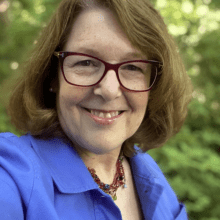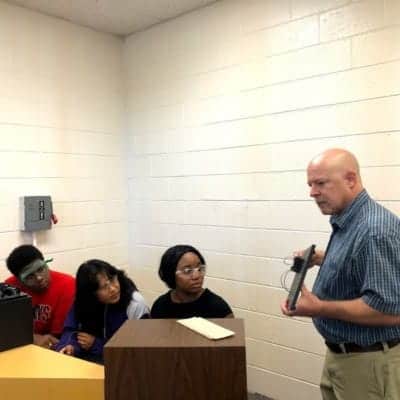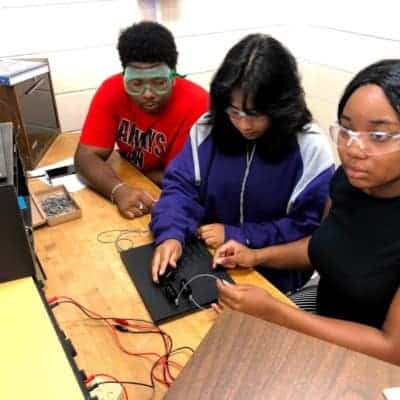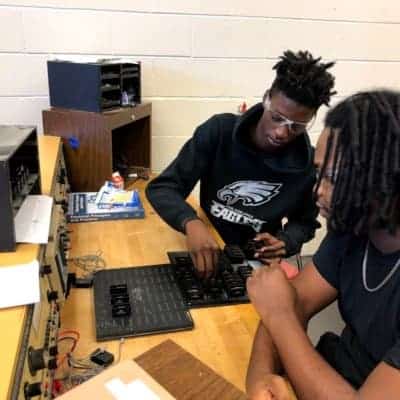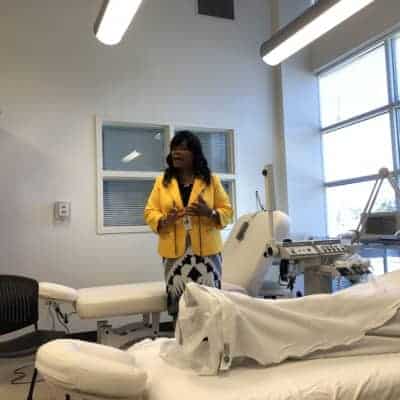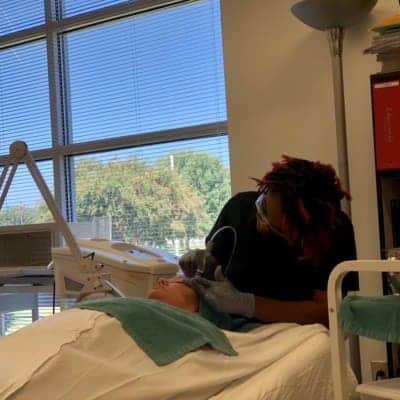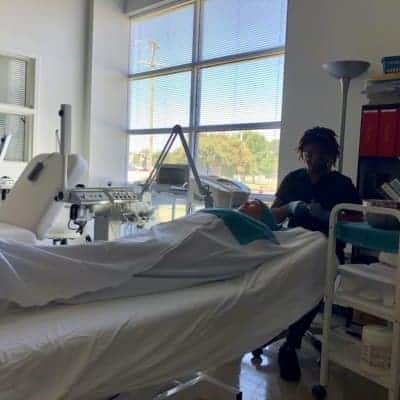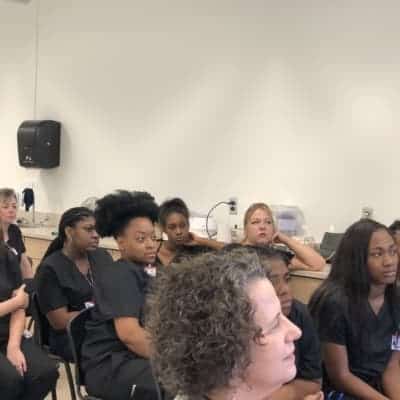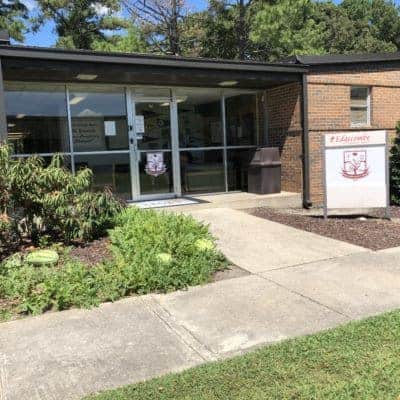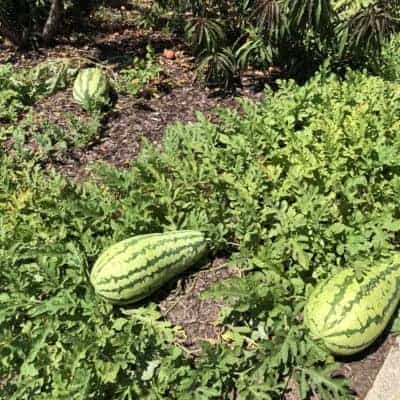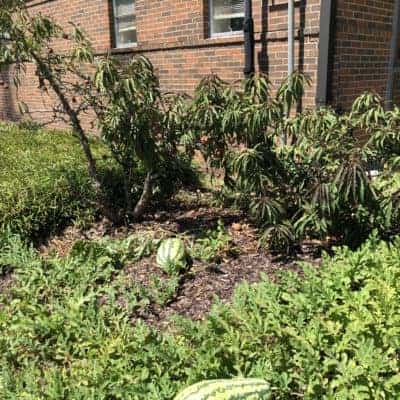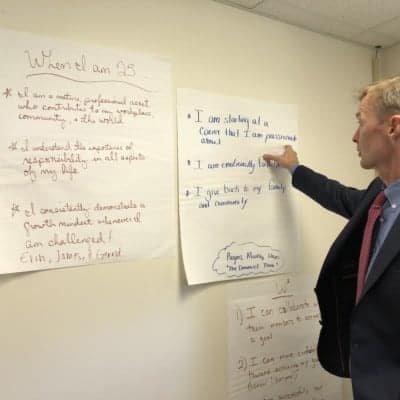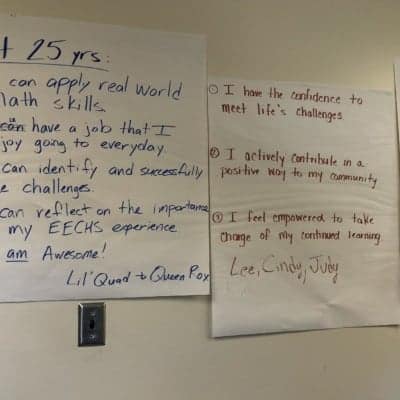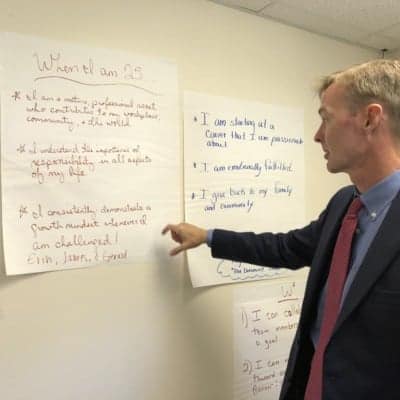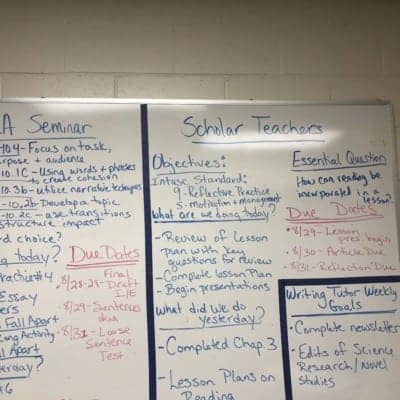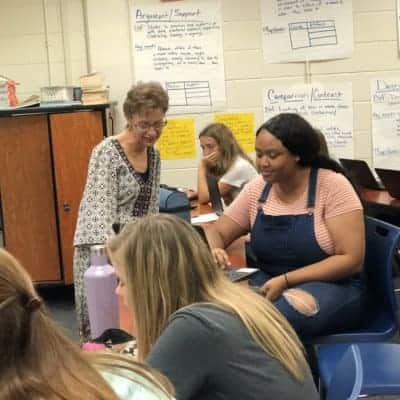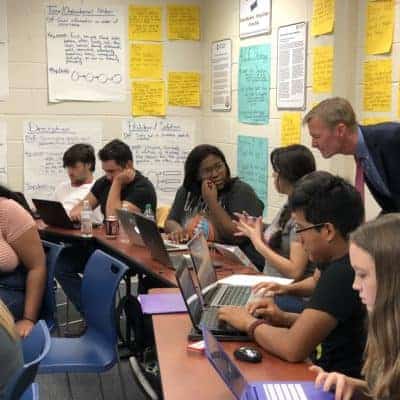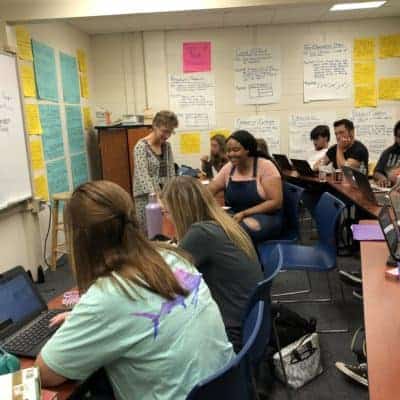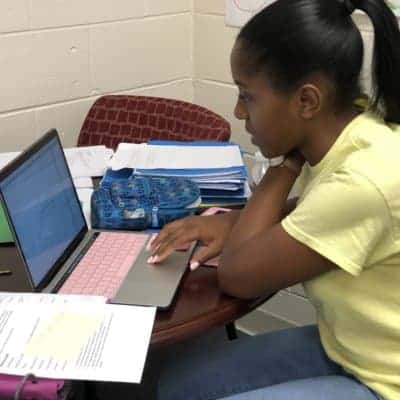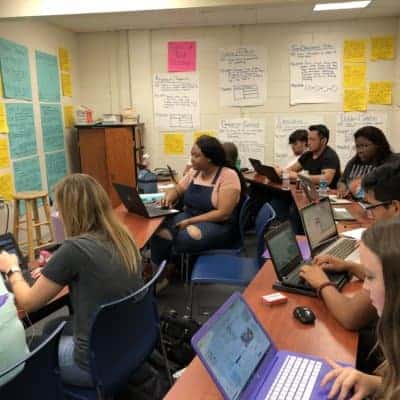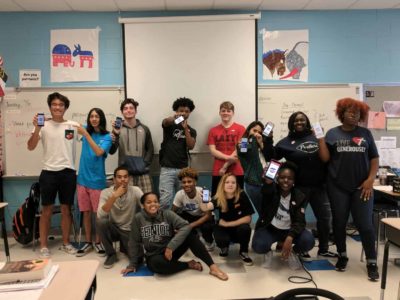What do watermelon seeds, historic preservation, virtual reality, STEM guitars, and balloon lifts have in common? They are giving students the “Edge” at Edgecombe Community College (ECC).
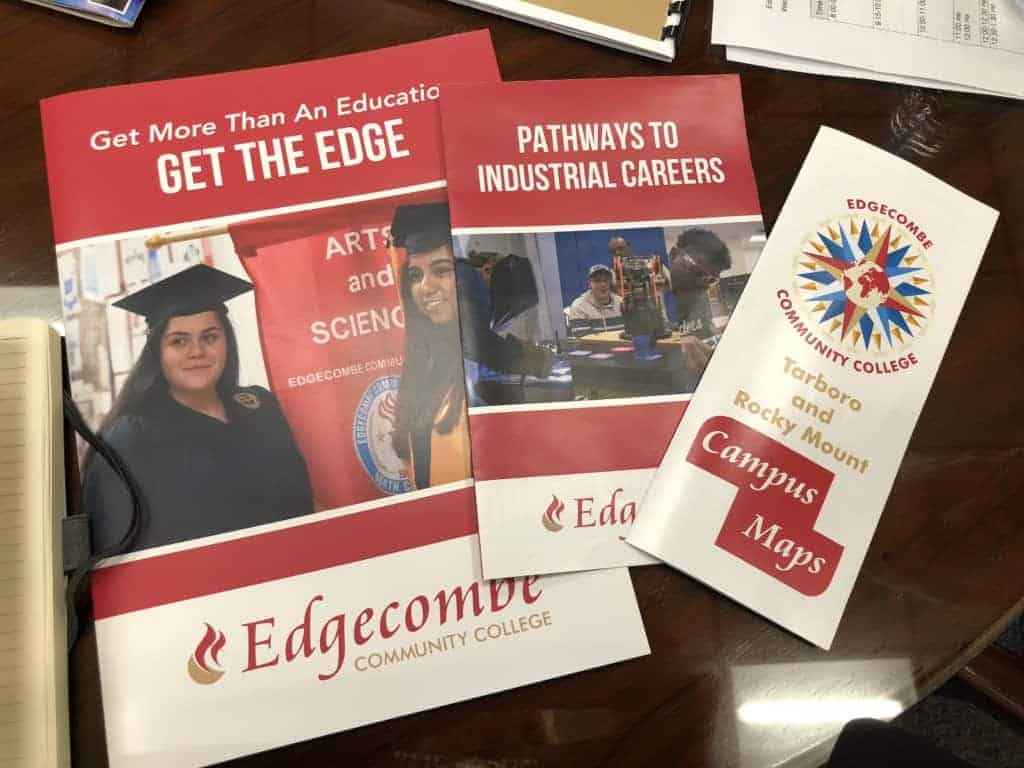
Edgecombe Community College’s motto is “Get more than an education, get the Edge.” It is evident during my day-long tour that the culture and programming are designed to give students an edge. From high school students in College and Career Promise or Early College to traditional students participating in unique programs, faculty and staff are passionately dedicated to their students’ success.
Edgecombe Community College offers continuing education, certificate, and two-year degree programs, serving about 13,000 individuals annually on its Tarboro and Rocky Mount campuses. ECC’s new president, Dr. Greg McLeod, joined on August 17, two weeks prior to my visit. McLeod says he is excited about the strong connection between the school and the community, the spirit he feels from the faculty, and how passionate they are about the work they do with students and the community around them.
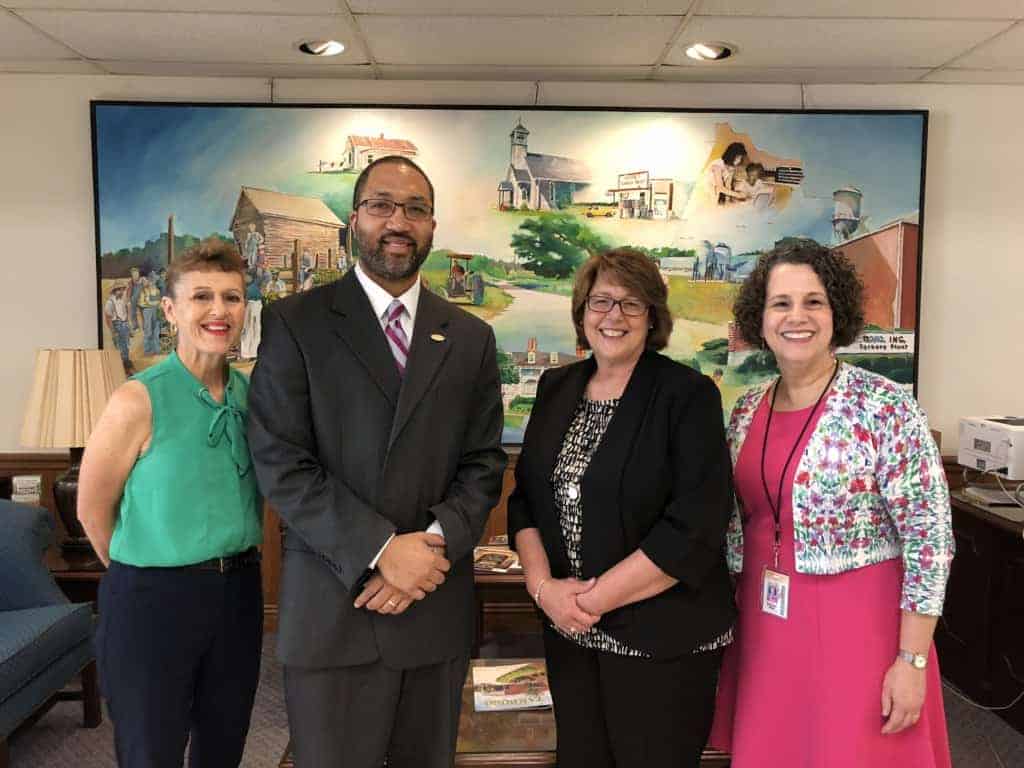

First stop is off-campus at North Edgecombe High School, where Doug Parrish is teaching a DC/AC electricity class. ECC Public Information Officer Mary Tom Bass tells me that through the College and Career Promise program, qualified high school students can pursue college credits while they are in high school. This tuition-free program allows students to get a head start on college or workplace preparation. ECC offers 26 degree and certificate programs to high school juniors and seniors.
DC/AC Electricity Class @NorthEdgecombe Through the @EdgecombeCC Career & College Promise program, qualified high school students in North Carolina can pursue college credits pic.twitter.com/JRZgmyfJmC
— Nancy Richmond Rose (@nrichrose) August 29, 2018
Parrish, who is the ECC Department Chair for Industrial and Technical Trades, has a passion for all things STEM. Last fall, he added a guitar-building enrichment activity to one of his classes. This creative approach to teaching is credited with keeping students from dropping out of high school.
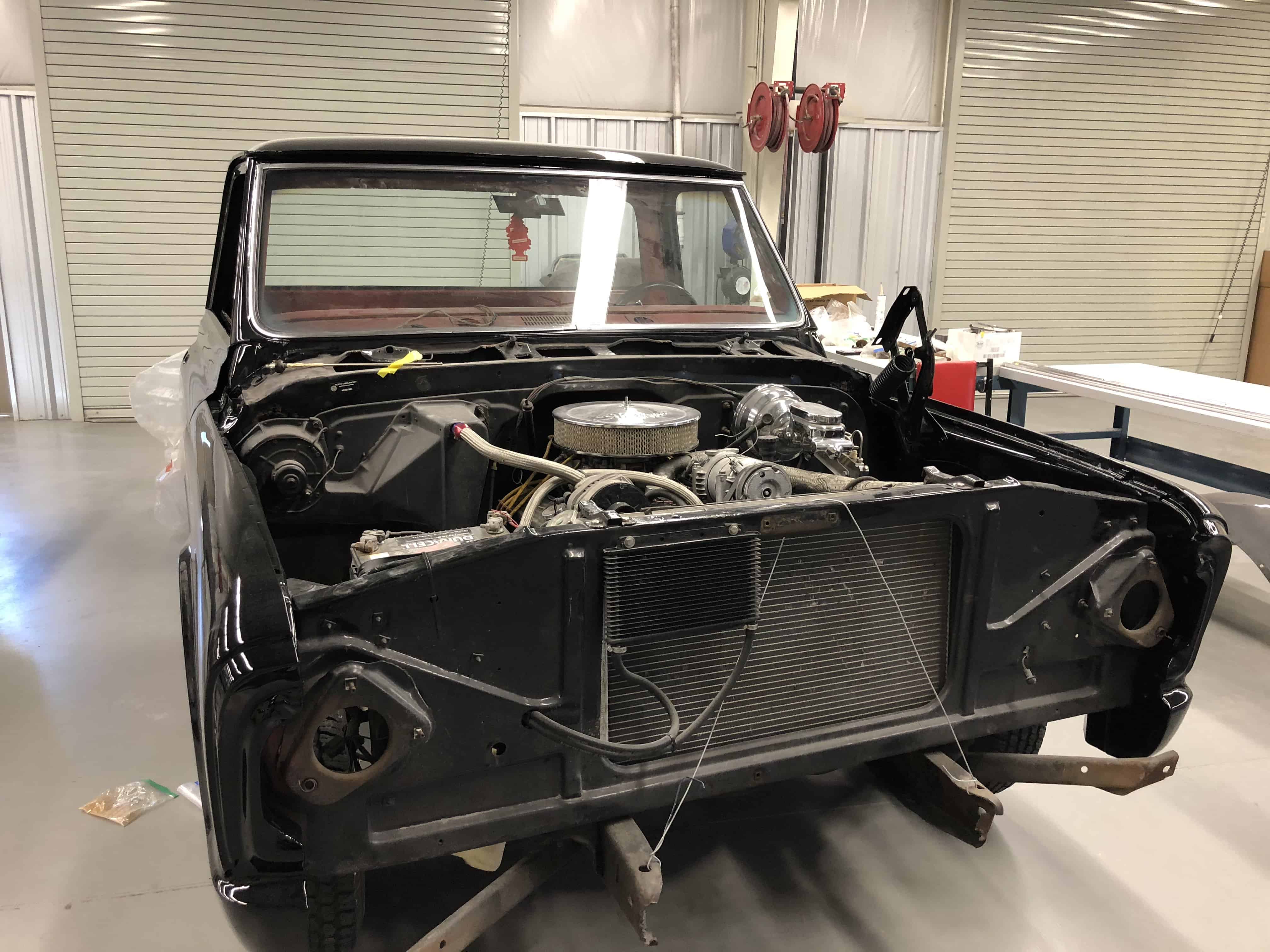
Golden Leaf Foundation Program Officer Suzanne Keil joins us as we visit a fascinating program in collision repair and refinishing. At first, it looks like students are playing a video game, but as program chair Bud Speight explains, his students are using virtual reality technology to practice vehicle painting. Instead of waiting hours for the paint to dry and then sanding the training vehicle each time a student paints, instructors can push a button to reset the program and it’s ready for the next student. What used to take 50 gallons of paint per semester now takes about five, saving money and the environment.
Program chair Bud Speight walks us through the process.
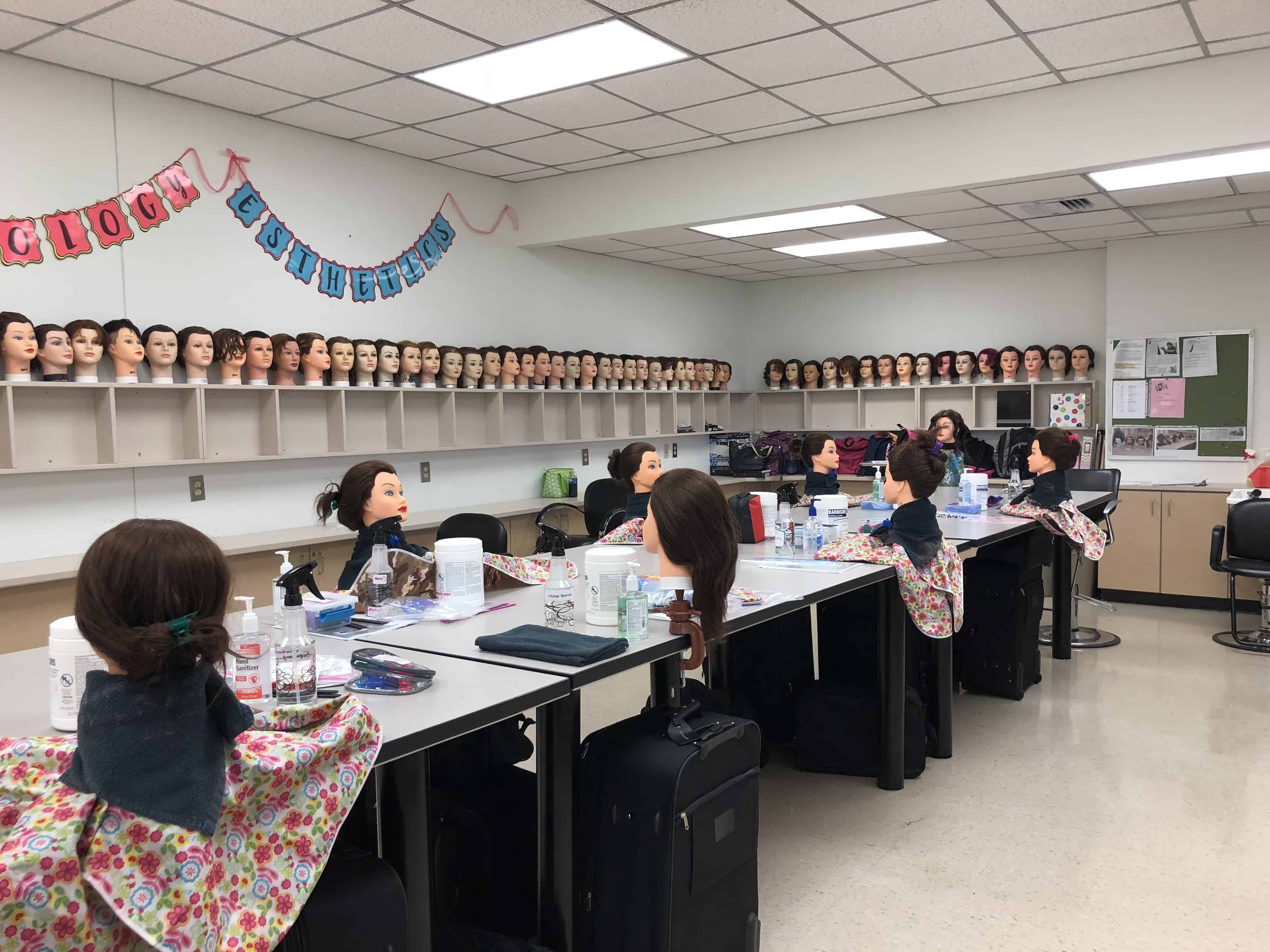
This evening-only esthetics program has us wishing we could sign up for a facial. Instructor Myra Hyman sets the mood with low lighting and soft music, as one of her students provides a client facial. Services are provided by students and are available to the public at reduced rates. The program takes two semesters (600 hours) to complete, and students must pass a practical exam and a written exam to become licensed by the state.
Hyman tells us she started out her career at ECC, practiced in Germany, and then came back to Edgecombe where she became accredited to teach. She has been teaching at ECC for 27 years.

I love historic houses. My dad grew up in a house built in 1769 and lived next door to the historic Colonial Inn in Hillsborough, NC. My grandmother used to take me with her on trips to antique stores and auctions to find “treasures,” as she called them. We’d often see windows, doors, wood, etc., from older homes that could be re-purposed. Not many people talked back then about accurately restoring and preserving old homes, so when Mary Tom Bass tells me we are visiting the Norfleet House, a historic house on the community college campus, I am excited. What I don’t expect is to find an entire program built on teaching people how to restore and preserve pieces of our history.
Edgecombe Community College’s historic preservation technology program began in 2009 and is the only one of its kind in North Carolina. The program offers degree, diploma, and certificate programs, as well as hands-on weekend continuing education classes. Students in the program learn how to repair historic homes and buildings and meet environmental and preservation standards. For students wishing to pursue a four-year degree in historic preservation and community planning, ECC has a transfer agreement with the College of Charleston in South Carolina.
I have the chance to sit down with program coordinator Monika Fleming, four students–Adrienne Copeland, Amber Perry, Megan Ecker, and Gillian Brooks–and instructor Chris Jones, who graduated from the program and came back as an instructor.
Program Coordinator Monika Fleming talks about the program and the historic Norfleet House.
Student Adrienne Copeland says of the program, “These are lost art techniques, and they’re going to be if we don’t keep teaching them. That’s what I wanted to learn. This is perfect for me.”
Student Amber Perry tells us, “I grew up with this deep, deep love for history. My dad and I started a greenhouse business and through that I met a really good friend from Tarboro.” That friend invited her to come work for her, and she started working on historic houses and their gardens.
“I really started to love the houses and being able to work on the yards … so it kinda got me on this kick of wanting to do historic landscaping.” That’s when she found the program at ECC.
Megan Ecker is a student at the Edgecombe Early College High School. She is currently earning the high school certificate, which will carry into the historic preservation program. This summer, Megan interned with HistoryCorps where she learned, and then taught other students, how to reglaze windows.
Student Gillian Brooks says she fell in love with the program on the third day. She previously attended a four-year college program in the mountains, but says, “It definitely was not as in-depth as this one is.” She hopes to work in a museum when she completes her studies.
Chris Jones talks about being injured on the job and making a career change. He says, “I have always been interested in woodworking, and house-building, and historic buildings … even before high school, but I’d never really participated in any type of program. I didn’t know of any type [of] program that existed.”
He learned about the program when visiting the Edgecombe Community College campus with his stepson. He graduated with an associate degree, started his own business restoring houses, and was invited back to serve as an instructor.
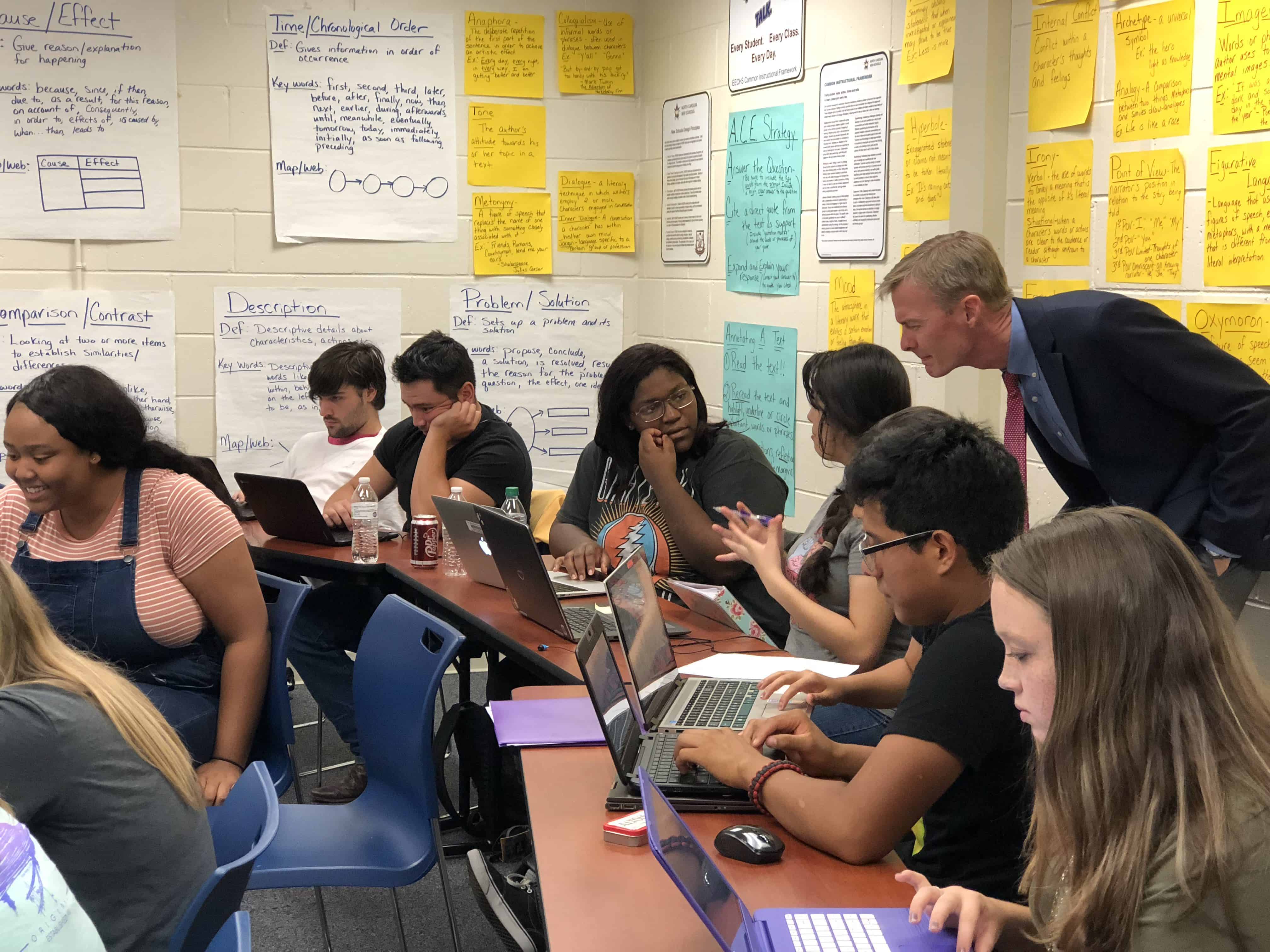
Edgecombe Early College High School is housed on the Edgecombe Community College Tarboro campus. The program begins in ninth grade and ends in the thirteenth year of study. In five years, students earn a high school diploma and an associate degree or two years of university credit toward a four-year degree. They may also earn stackable credentials. The early college operates like a conventional public high school, with no tuition costs and with weekday classes, but there is an application process. Just over 80 percent of students are first-generation college students, and the school has a 100 percent graduation rate. The school serves the entire county.
One of the first things we notice as we walk up to the Early College is watermelons growing near the front door. I ask principal Matt Smith to tell us about them. Smith says that a plant just “popped up,” and he decided to let it grow and see what would happen. The plant multiplied, and students started to take an interest. Conversations about food began, and students suggested starting a community garden. Smith says there is a watermelon cutting celebration planned for the week after our visit.
A small seed sprouted more than just a watermelon. This turns out to be somewhat of a metaphor for principal Smith’s culture at the Early College. Smith says he “leads from the middle, in lock-step with his teachers.” He supports ideas that pop up and gives them the time, space, and environment to grow. He emphasizes family as their team with a shared mission, which is posted everywhere in the school. He speaks of “living their values on a daily basis,” and a culture of experimentation and growth mindset.
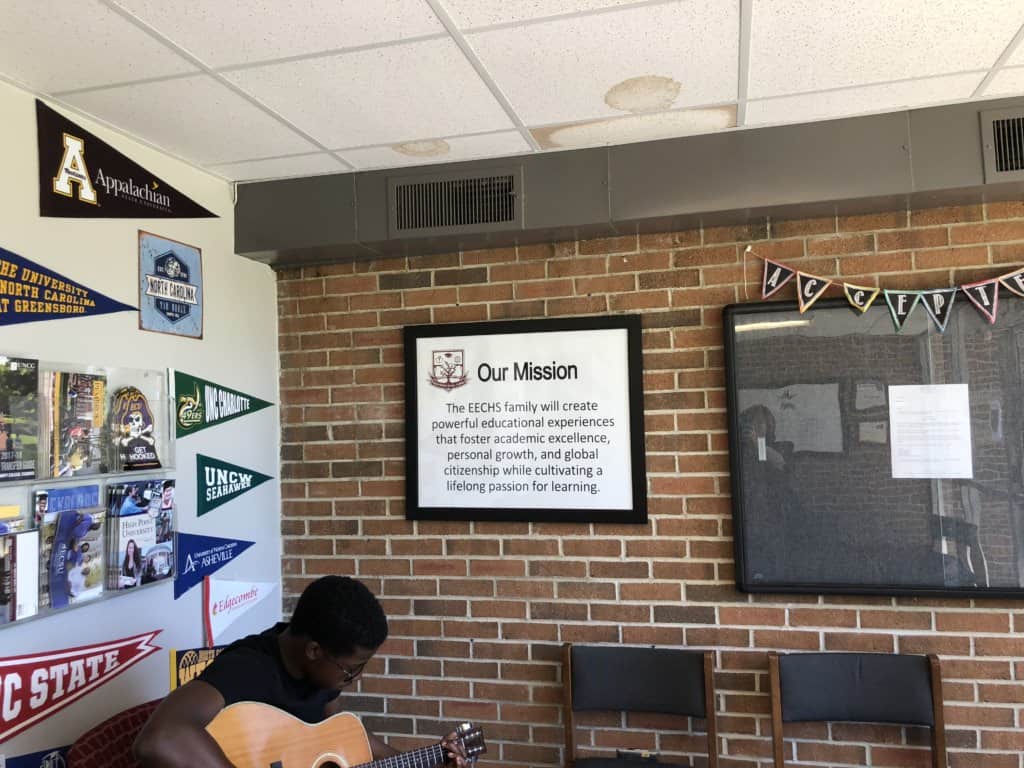
Smith says they “prepare kids for the world as it could be, not necessarily how it is.” They are asking themselves the question, “What do we want for our students when they are 25?”
We stop by the scholar teachers classroom. The scholar teachers program begins as a three-year cohort model where students take both high school and college classes. The program focuses on career exploration, service learning, social justice, and the power of place–surfacing the unique needs of Edgecombe County and how to serve them. The goal is to develop a talent pool of teachers in Edgecombe County.
We walk down the hall to visit a science class where students have built self-contained ecosystems.
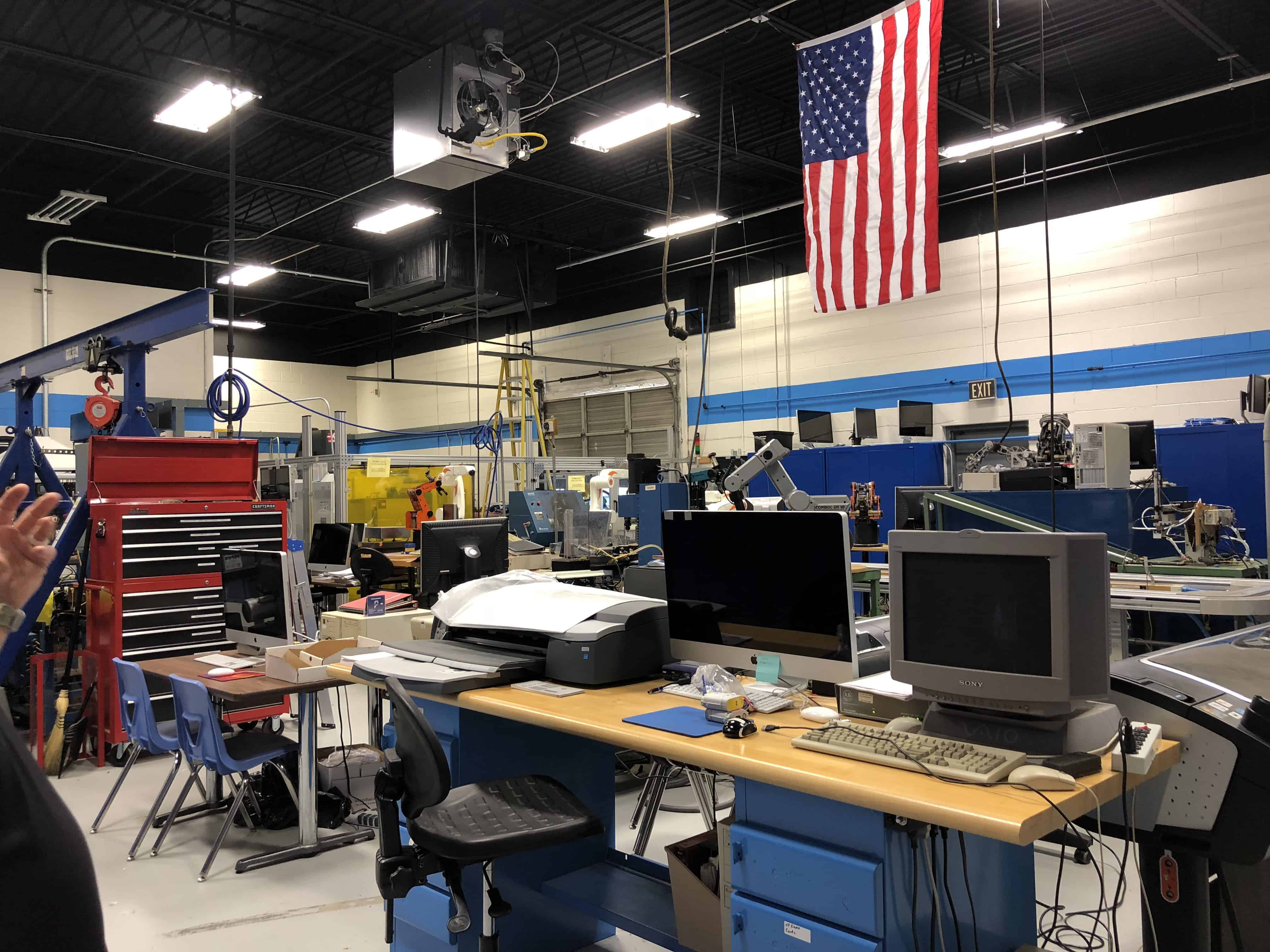
Our last stop of the day is to visit Dr. Stan Garren and learn about advanced manufacturing technology. Garren started ECC’s advanced manufacturing program in 1994. The program focuses on integration–getting robots, computers, and machines to communicate with each other. Integration requires skills in programming, wiring, and an understanding of all manufacturing processes. When looking for potential students, Garren says, “If you are in the top 10 percent of your class in high school, that’s what I want.”
The program is unique in that it is an evening-only program. Students can graduate in two years with an associate degree.
We have one last treat. Physics and astronomy instructor Rebecca Stamilio Ehret shares with us ECC’s high altitude balloon challenge successes!

